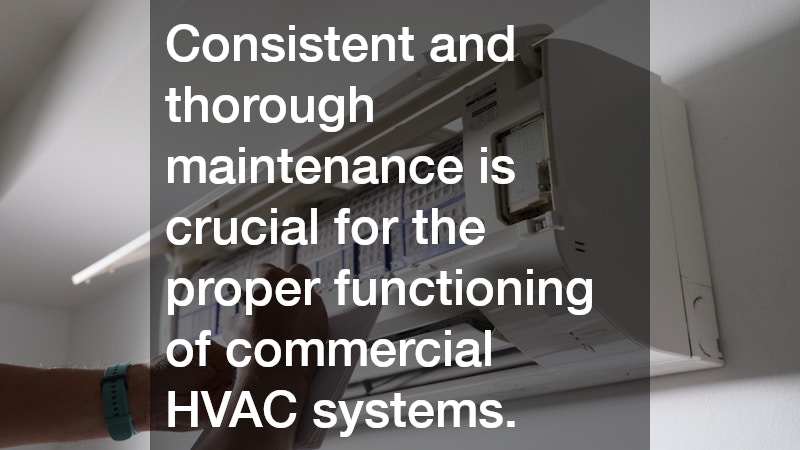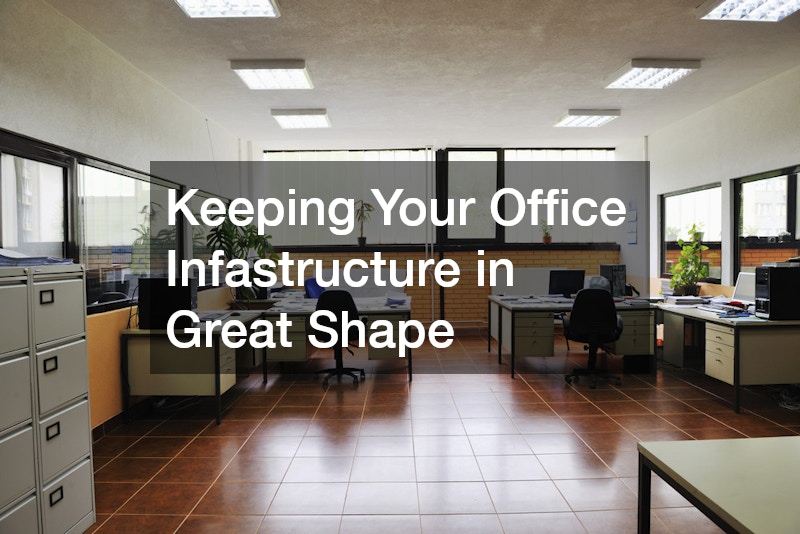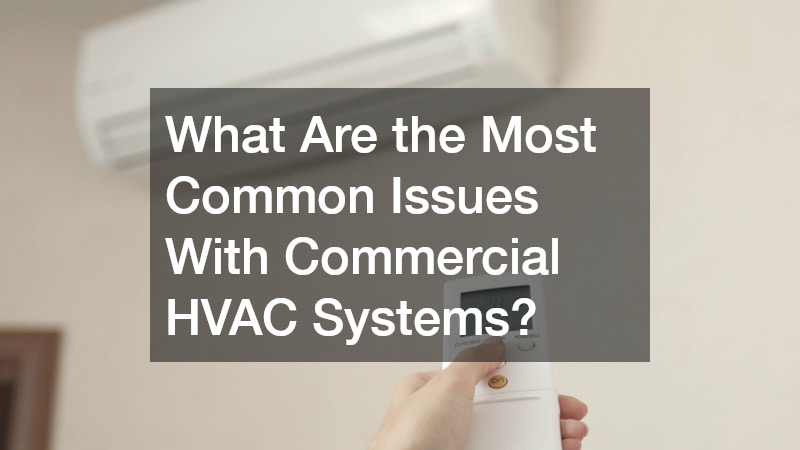Commercial HVAC systems are the backbone of indoor climate control in businesses and large buildings. Without them, the environment can become uncomfortable and even stifling, impacting both productivity and satisfaction. However, as efficient as these systems are, they aren’t without their problems. In this article, we will explore some of the most common issues that arise within commercial HVAC systems and provide insights into how a professional commercial HVAC company can help keep them running smoothly.
1. Inadequate Maintenance
Consistent and thorough maintenance is crucial for the proper functioning of commercial HVAC systems. When routine checks and services are neglected, minor issues can quickly escalate into significant problems, resulting in costly repairs and disruptions.
Regular maintenance performed by a knowledgeable commercial HVAC company ensures that all the components are functioning optimally and helps in early identification of potential issues.
One common issue arising from inadequate maintenance is the clogging of air filters. When filters are not cleaned or replaced regularly, they accumulate dust and debris, which restricts airflow and forces the system to work harder than necessary. This increased strain can lead to higher energy consumption, reduced efficiency, and even system failure if left unaddressed.
Another consequence of poor maintenance is the neglect of critical components such as condenser coils and motors. If these parts are not inspected and serviced regularly, they can become damaged or inefficient over time. A professional commercial HVAC company has the expertise to perform comprehensive maintenance checks, ensuring that these components are clean, well-lubricated, and working efficiently to prevent unexpected issues.
2. Refrigerant Leaks
Refrigerant leaks are a common issue in commercial HVAC systems, often stemming from wear and tear or corrosion in the refrigerant lines. When refrigerant levels are low, it affects the system’s ability to cool effectively, leading to uneven temperatures and discomfort. Detecting and fixing leaks promptly is crucial, and this is best accomplished with the support of a commercial HVAC company skilled in identifying and addressing refrigerant issues.
Ignoring refrigerant leaks can lead not only to cooling inefficiencies but also to further system damage. Low refrigerant levels force the compressor to work overtime, which can result in overheating and eventual breakdown. Seeking the assistance of a reliable commercial HVAC company can ensure that refrigerant levels are topped up safely and that leaks are properly sealed to prevent future occurrences.
Moreover, improper handling of refrigerant can have negative environmental impacts if it escapes into the atmosphere. This highlights the importance of entrusting refrigerant leak repairs to certified technicians who can reclaim and recycle refrigerants in accordance with environmental regulations. Employing the services of a professional commercial HVAC company provides peace of mind that such issues are resolved both effectively and responsibly.
3. Thermostat Malfunctions
Thermostat malfunctions are another prevalent issue that can affect commercial HVAC systems. These malfunctions can occur due to wiring problems, sensor issues, or simply outdated technology. A malfunctioning thermostat can lead to incorrect temperature readings and result in improper functioning of the heating and cooling processes, causing discomfort for building occupants.
Sometimes, the problem can be as simple as a miscalibrated thermostat or dead batteries, leading to significant temperature differences than expected. In other cases, the thermostat might be improperly placed, influenced by direct sunlight or drafts, which can cause skewed readings. A commercial HVAC company can assess the situation, reinstall the thermostat in an optimal location, or upgrade the system to a more accurate and reliable model.
Additionally, advanced programmable or smart thermostats can offer enhanced control over HVAC systems, allowing for energy-efficient temperature management. Partnering with a trusted commercial HVAC company can help businesses choose and install the right thermostat systems that fit their specific needs, enhancing both comfort and energy savings.
4. Poor Airflow
Poor airflow in commercial HVAC systems can lead to uneven heating or cooling, hot and cold spots, and reduced indoor air quality. This problem often stems from various factors, including obstructed ductwork, undersized vents, or inadequate fan performance. Addressing airflow issues requires precise diagnostics, which a commercial HVAC company can provide through a detailed inspection.
Blocked or leaky ducts can significantly hinder the distribution of air, while insufficient return air pathways can exacerbate pressure imbalances. A professional inspection by a commercial HVAC company can identify blockages or leaks and offer solutions such as sealing ducts, clearing debris, or adjusting airflow settings. Doing so can restore airflow balance and system efficiency.
Improved airflow also depends on correctly sized HVAC units. An undersized or oversized system can lead to persistent airflow issues, with oversized units cycling on and off more frequently, while undersized ones struggle to adequately heat or cool. A commercial HVAC company not only addresses current issues but also offers expert guidance when upgrading or replacing systems to ensure proper sizing and airflow management.
5. Electrical Problems
Commercial HVAC systems, with their reliance on various electrical components such as circuits, capacitors, and fans, are susceptible to electrical problems. Faulty wiring, damaged capacitors, or worn-out contactors can cause system inefficiencies, unexpected shutdowns, or even pose electrical hazards. Routine electrical inspections by a commercial HVAC company are vital to ensure the integrity of all electrical connections and components.
Inconsistent performance can also result from voltage imbalances or power surges affecting the HVAC system’s electronics. Sensitive components can be damaged over time, leading to erratic system behavior or complete failure. A qualified commercial HVAC company will have the tools and experience to diagnose electrical issues accurately and perform necessary repairs or replacements.
Maintaining the electrical health of a commercial HVAC system not only prevents potential failures but also extends the system’s lifespan and reliability. Investing in regular electrical inspections and maintenance by a professional HVAC company can mitigate risks and ensure that the system runs efficiently and safely, keeping business environments comfortable and conducive to productivity.






